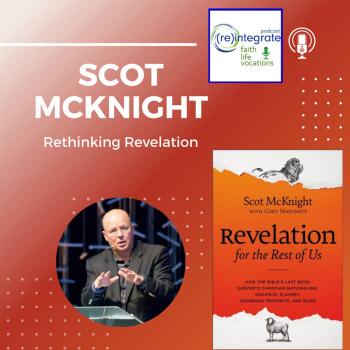God’s Mission and Our Mission of Reconciliation
God’s mission to reconcile all things to himself drives his purpose in calling a particular people to be the Church. As Ray Anderson, in his book The Soul of Ministry, states, “Mission precedes and creates the church.”
The Church’s mission is determined first by God’s mission through Christ.
And what is that mission?
One of the major ways the Bible articulates God’s mission is “Reconciliation.”
Let’s look at Colossians 1:15-20 with 2 Corinthians 5:17-20.
The Son is the image of the invisible God, the firstborn over all creation. For in him all things were created: things in heaven and on earth, visible and invisible, whether thrones or powers or rulers or authorities; all things have been created through him and for him. He is before all things, and in him all things hold together. And he is the head of the body, the church; he is the beginning and the firstborn from among the dead, so that in everything he might have the supremacy. For God was pleased to have all his fullness dwell in him, and through him to reconcile to himself all things whether things on earth or things in heaven, by making peace through his blood, shed on the cross.” (Colossians 1:15-20)
God’s mission then, according to this passage, is reconciliation. The scope of Creation was “all things;” the scope of the Fall was “all things,” and the scope of redemption, therefore, is “all things.” That is God’s mission in the world.
Notice that this is how Apostle Paul defines the purpose of the cross of Christ in this passage. The reconciliation of all things back to God is accomplished “by making peace through his blood, shed on the cross.”
So, this brings us to our mission in the world.
So if anyone is in Christ, there is a new creation: everything old has passed away; see, everything has become new. All this is from God, who reconciled us to himself through Christ, and has given us the ministry of reconciliation; that is, in Christ God was reconciling the world to himself, not counting their trespasses against them, and entrusting the message of reconciliation to us. So we are ambassadors for Christ, since God is making his appeal through us; we entreat you on behalf of Christ, be reconciled to God. (2 Corinthians 5:17-20)
God’s mission through Christ of reconciling all things back to himself begins when he “reconciled us to himself through Christ,” and continues when we, as his “ambassadors,” perform “the ministry of reconciliation.”
In other words, our mission is to be God’s agents of restoring all aspects of the created order back to God’s loving rule and standards, reconciling all things back to God through Christ. When an individual accepts God’s offer of reconciliation found in Christ (by believing in his death and resurrection), this is evidence that the new creation has come – all things are becoming new. So, our message to people is, “Be reconciled to God!” How? “By becoming part of what God is doing for the entire cosmos through his Son, Jesus Christ – redeeming, reconciling, restoring!”
 God the Creator is the ruler of all of his creation, not just the natural created world, but also of the human endeavors in society and culture (see “What is the Creation? What is God Redeeming?”). As Alan Hirsch says in his excellent book, The Forgotten Ways: Reactivating the Missional Church (available from Hearts & Minds),
God the Creator is the ruler of all of his creation, not just the natural created world, but also of the human endeavors in society and culture (see “What is the Creation? What is God Redeeming?”). As Alan Hirsch says in his excellent book, The Forgotten Ways: Reactivating the Missional Church (available from Hearts & Minds),
“Therefore, everything—one’s work, one’s domestic life, one’s health, one’s worship—has significance to God. He is concerned with every aspect of the believer’s life, not just the so-called spiritual dimensions… There is no such thing as sacred and secular in biblical worldview. It can conceive of no part of the world that does not come under the claim of Yahweh’s lordship. All of life belongs to God, and true holiness means bringing all the spheres of our life under God.”
In other words, God is in the process of reconciling “all things” back to himself, not just the individual souls of people, not just the natural creation, but everything, including society and culture. All things were created by him, and he wants it all back.
But here are the questions for us today: Has American evangelical Christianity lost the biblical understanding of God’s reconciliation ministry? What can we do to re-establish this?
![]()












